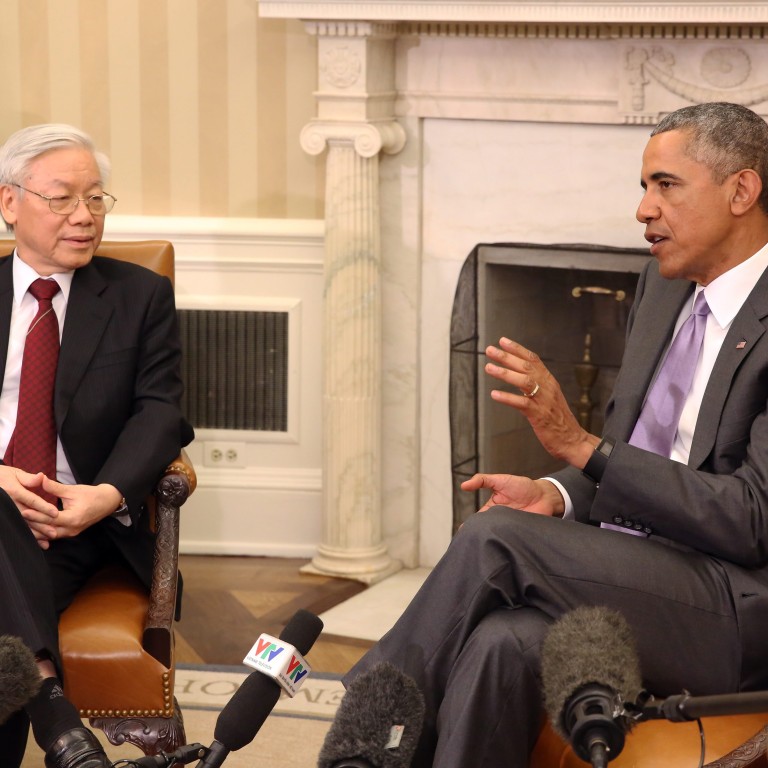
Despite other relationships, Sino-US ties remain key to regional stability
US President Barack Obama and Vietnamese party general secretary Nguyen Phu Trong met at the White House to strengthen relations with their discussion including the US-led Trans-Pacific Partnership.
Vietnam and the US have proven the point that common interests can overcome the biggest of obstacles. Their shared concern is China's economic and strategic rise and countering it is enough to put memories of a devastating war and ideological differences to one side. More than 40 years after the American withdrawal and on the 20th anniversary of the restoration of diplomatic relations, ties on Tuesday took a major step forward with the first visit by a Vietnamese Communist Party chief to Washington. But it is not such trips that will determine the extent of Asian stability; rather, it depends on how the significantly more important Sino-US relationship develops.
US President Barack Obama and Vietnamese party general secretary Nguyen Phu Trong met at the White House to strengthen relations by overcoming differences and building on common ground. Trade is their biggest success, with Vietnam in the past two years becoming the US' largest trading partner in Southeast Asia. Their discussion included the US-led Trans-Pacific Partnership, a proposed Asia-Pacific trade deal including Vietnam that the American leader hopes to conclude this month. For now excluding China, the accord, along with a rebalancing of military forces, is a major part of Obama's push to reassert his country's influence in the region.
Bilateral agreements included health and aviation safety and more will be signed on trade and investment in coming days. Political differences were discussed and the US voiced concern over Vietnamese human rights and outstanding war issues. But a shared strategic concern over China is drawing them closer.
Former enemies have to make every effort to move forward and trust can be built through talks, trade and economic interests. Vietnam, the Philippines and other nations sceptical about China's regional intentions may see turning to the US as security insurance. But peace and stability lies most in the US and China improving ties. President Xi Jinping's trip to the US in September is key to determining the direction.

